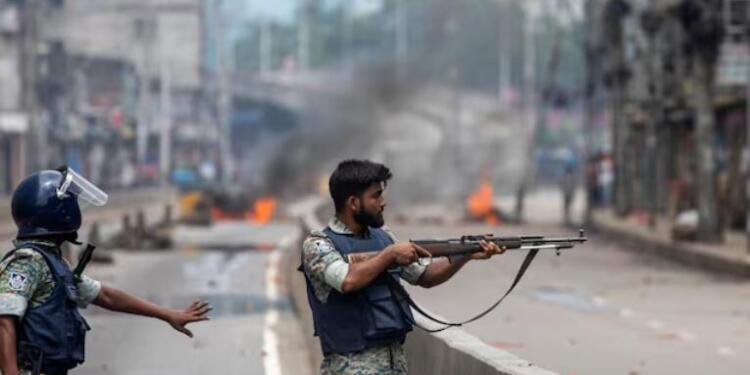Jamaat-e-Islami—a party that has shaped the political landscape of Bangladesh and left a troubling legacy that echoes across South Asia.
Founded in 1941 by Syed Ab’ul Ala Maududi in British India, Jamaat-e-Islami was envisioned as a movement to promote Social and Political Islam. Maududi’s vision was clear: he opposed the partition of India, believing it would fragment the Muslim ummah. This ideological stance set the stage for a legacy marked by controversy and conflict.
When East Pakistan sought independence in 1971, Jamaat-e-Islami’s East Pakistan wing, under leaders like Ghulam Azam, became infamous for its role in collaborating with the Pakistani military. Their paramilitary forces, including Razakar, Al-Shams, and Al-Badr, were responsible for horrendous war crimes. They systematically targeted pro-liberation intellectuals, leading to the brutal massacre of over 200 scholars, artists, and writers.
Following Bangladesh’s independence, the party was initially banned. However, the ban was lifted in 1975, and Jamaat-e-Islami Bangladesh was formed. Despite its reformation, the party continued to push for an Islamic state governed by Sharia law, clashing with the secular ideals of the new nation.
In recent years, Jamaat-e-Islami’s actions have been marred by violence and controversy. The party was a key player in the 2013 protests against the International Crimes Tribunal, which were marked by deadly clashes and widespread destruction. The government’s response was swift: on August 1, 2013, the Bangladesh Supreme Court canceled Jamaat’s registration, ruling it unfit for elections. The ban was later reinforced on August 1, 2024, citing national security concerns.
The party’s influence didn’t stop with its ban. In a dramatic turn of events, Jamaat-e-Islami’s controversial history contributed to the recent political turmoil in Bangladesh. The resignation of Prime Minister Sheikh Hasina and the ensuing chaos can be linked to the broader unrest fueled by Jamaat’s legacy of divisive politics and its role in fueling extremism.
The recent unrest, including student-led protests over job quotas, saw Jamaat-e-Islami accused of exploiting these movements. This contributed to the violence that prompted the government’s decision to ban the party and its student wing, Islami Chhatra Shibir, under anti-terrorism laws.
One of the most perplexing aspects of Jamaat-e-Islami’s international ties is its relationship with the U.S. Some argue that U.S. support was part of a broader strategy to counterbalance regional influences. However, this association has drawn significant criticism, especially given the party’s controversial actions and their impact on regional stability.
In conclusion, Jamaat-e-Islami’s legacy is a stark reminder of how ideological extremism can destabilize a nation. Its role in Bangladesh’s political upheaval and its controversial international relationships underline the dangerous potential of extremist movements in shaping national and regional politics.
As Bangladesh navigates its turbulent political landscape, the impact of Jamaat-e-Islami’s past actions continues to reverberate, shaping the country’s present and future.

























